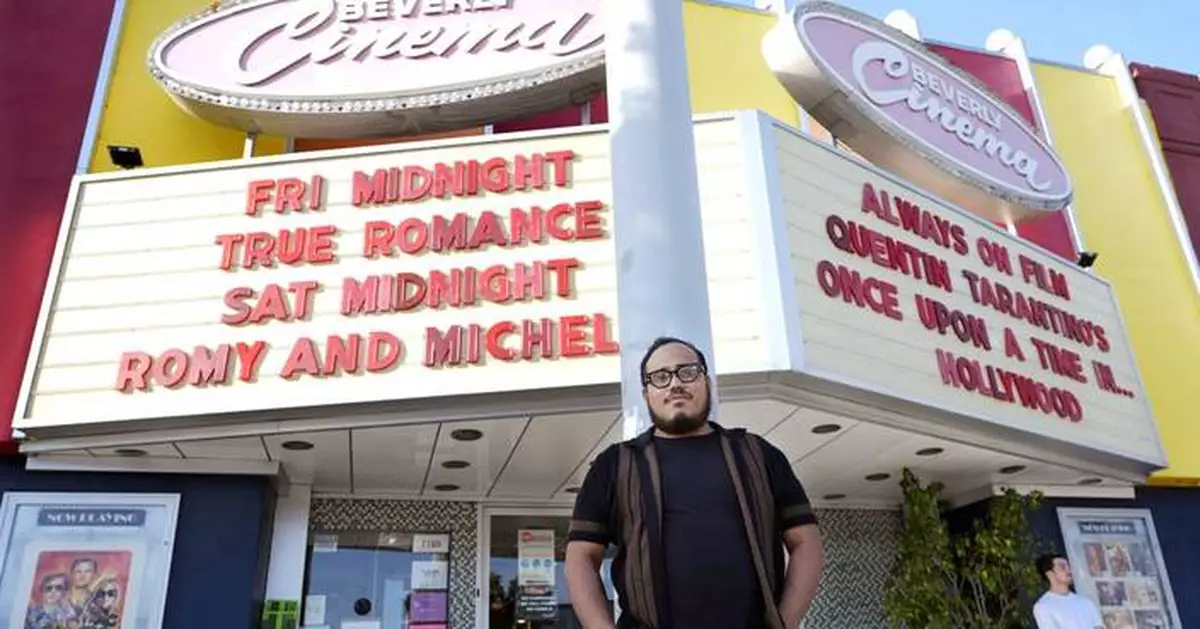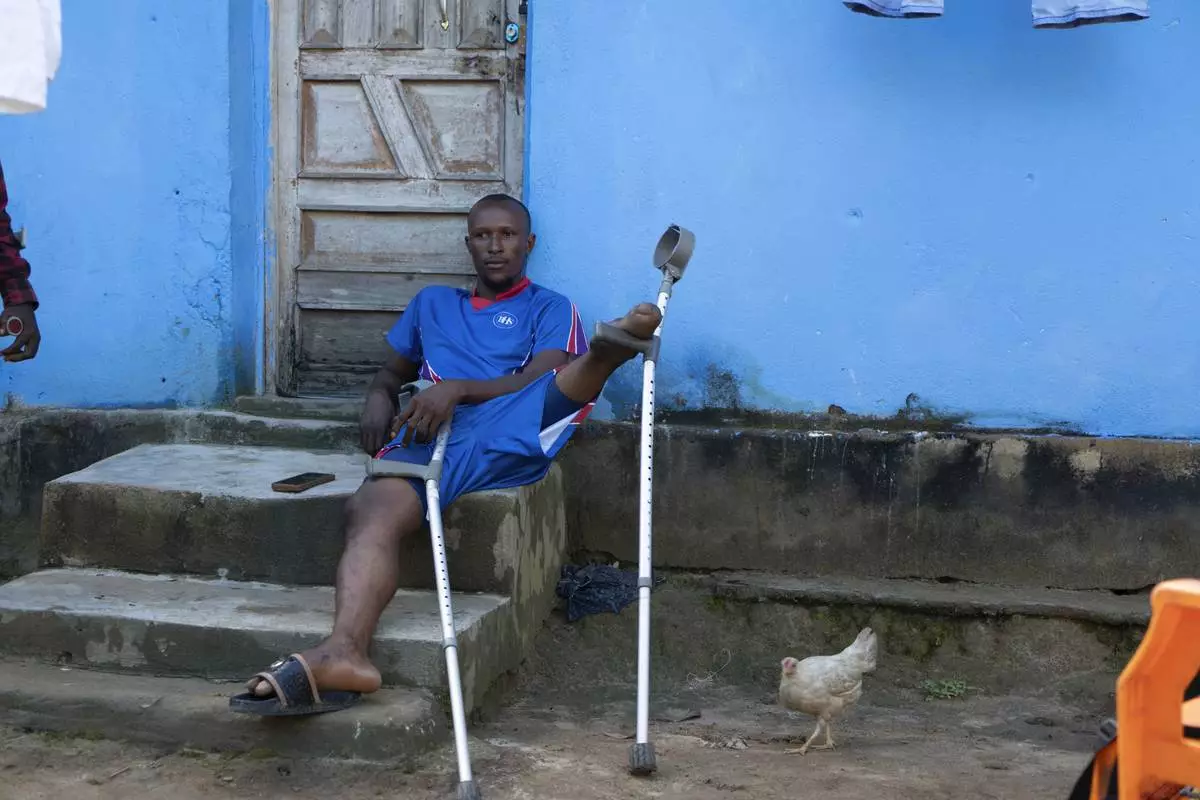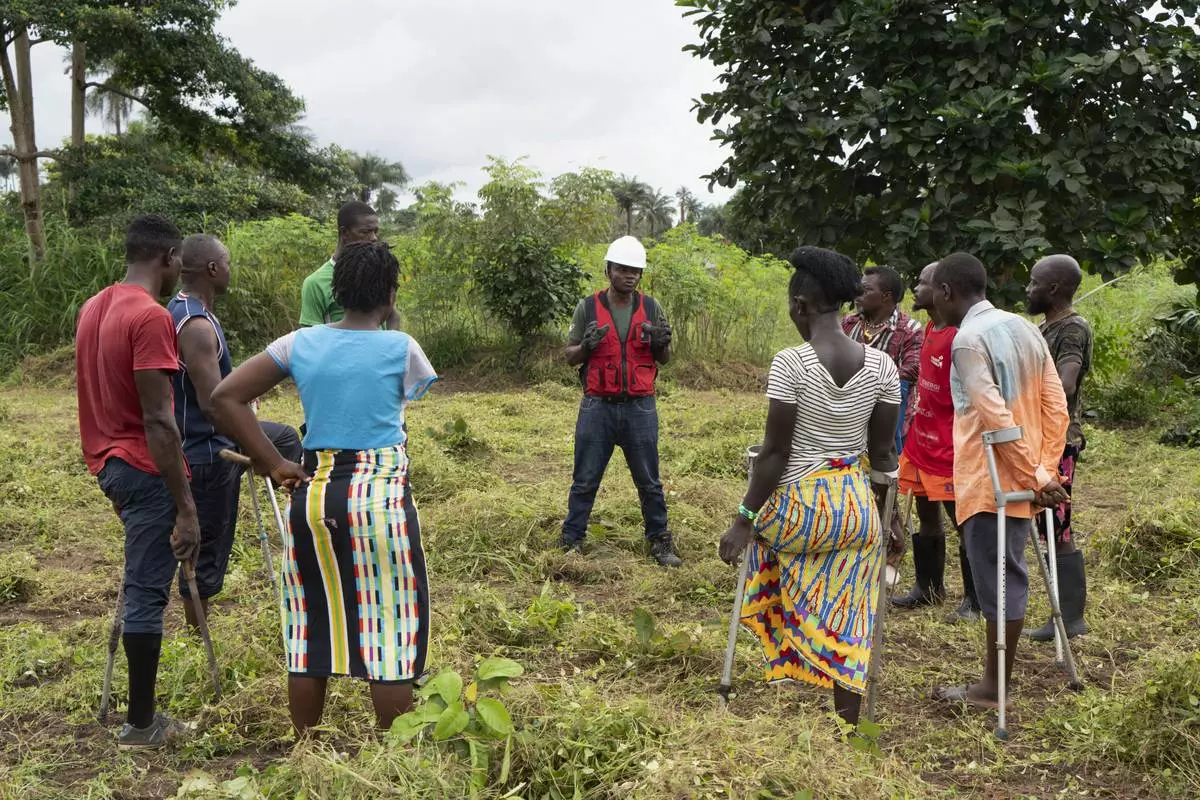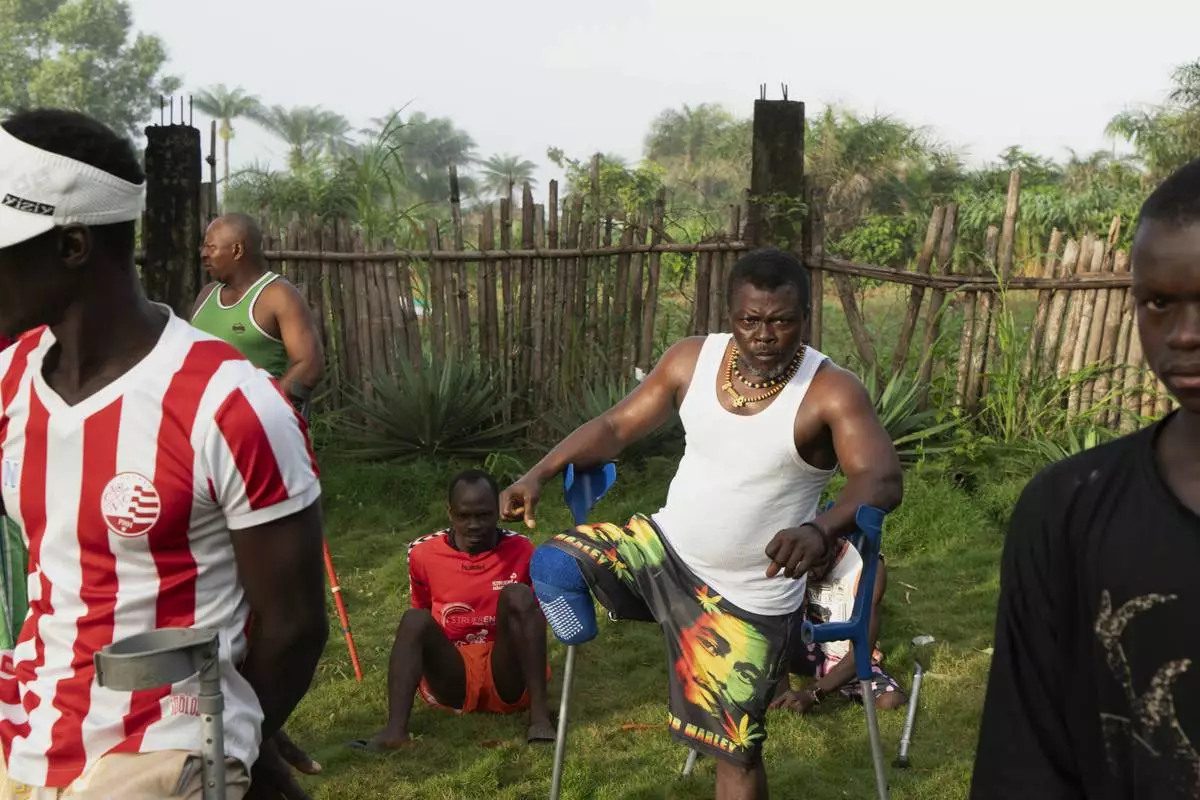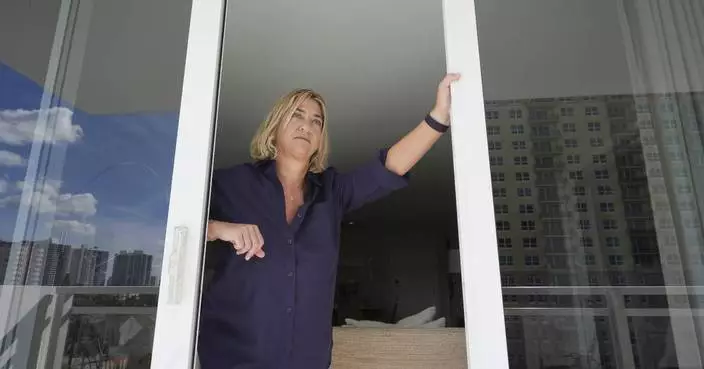LOS ANGELES (AP) — On a hot summer evening, Miles Villalon lined up outside the New Beverly Cinema, hours before showtime.
The 36-year-old already had tickets to the Watergate-themed double feature of 1976's “All the President’s Men” and 1999's “Dick.” But Villalon braved Los Angeles' infamous rush-hour traffic to snag front-row seats at Quentin Tarantino's historic theater.
This level of dedication is routine for the Starbucks barista and aspiring filmmaker, who typically sees up to six movies a week in theaters, and almost exclusively in independently owned theaters in and around Los Angeles.
“I always say it feels like church,” he said. “When I go to AMC, I just sit there. And I can’t really experience that communal thing that we have here, where we’re all just worshipping at the altar of celluloid.”
Streaming — and a pandemic — have radically transformed cinema consumption, but Villalon is part of a growing number of mostly younger people contributing to a renaissance of LA’s independent theater scene. The city’s enduring, if diminished, role as a mecca of the film industry still shapes its residents and their entertainment preferences, often with renewed appreciation after the pandemic.
Part of what makes the city unique is its abundance of historic theaters, salvaged amid looming closures or resurrected in recent years by those with ties to the film industry. Experts see a pattern of success for a certain kind of theater experience in Los Angeles.
Kate Markham, the managing director at Art House Convergence, a coalition of independent cinema exhibitors, said a key factor is the people who run these theaters.
“They know their audiences or their potential audiences, and they are curating programs and an environment for them to have an exceptional experience,” she wrote in an email.
Tarantino pioneered the trend when he purchased the New Beverly in 2007. After Netflix bought and restored the nearby Egyptian Theater, which first opened in 1922 as a silent movie house, the company reopened it to the public in November in partnership with the nonprofit American Cinematheque. It's now a bustling hub, regularly welcoming A-list celebrities premiering their projects as well as film buffs willing to stick around for hourslong marathons, like a recent screening of four Paul Thomas Anderson movies.
Further east is Vidiots. Previously existing as a Santa Monica video store before it closed in 2017, Vidiots reopened across town five years later with the addition of a 271-seat theater, bar and new crop of devotees.
“It’s literally my favorite place to be outside of my own snuggly home,” said filmmaker and actor Mark Duplass, a financial backer of Vidiots alongside dozens of other high-profile names, including Aubrey Plaza and Lily Collins.
What draws people to independent theaters can vary, from older programming to elevated food-and-drink offerings to lower prices. But many agree, above all, there is a communal aspect chains can’t match.
“The bigger places obviously have premium formats and stuff like that. But I think there’s a lot less communal connection” said Dr. Michael Hook, who attended a matinee of “Seven Samurai” at Vidiots with a Children’s Hospital Los Angeles co-worker. “You’re not just milling around with people who also have selected to go to a three-hour-long 1950s Japanese movie.”
Although the pandemic was a blow from which the box office has yet to recover, it also served as a pruning that made the movie theater landscape more sustainable for the streaming era, according to Janice O’Bryan, Comscore’s senior vice president.
“COVID weeded out some of the stuff that needed to close anyway,” O’Bryan said of the more than 500 theaters that closed nationwide. “I think that it made everything healthier.”
The theaters that survived have found niches, sometimes purposefully eschewing the chains' 4DX, reclining seats and dining services.
“For the types of films that we show, I definitely don’t want waiters walking around, bringing stuff to people and hearing the scraping of cutlery on plates,” laughed Greg Laemmle, who co-runs the Laemmle Theaters, a fixture of independent cinema in Los Angeles for nearly a century.
But Laemmle acknowledges the importance of giving audiences options beyond popcorn and soda, especially as an additional revenue source. Embracing food and drinks can sometimes turn the theater into a unique destination.
“When I normally go to a movie theater, I show up two minutes before the movie starts,” Duplass said. “I go to Vidiots like 45 minutes before the movie starts so I can get my chilled Junior Mints, I can have a drink at the bar, see some people. I go and walk around the video store.”
In February, more than 30 filmmakers — including Jason Reitman, Steven Spielberg, Denis Villeneuve and Christopher Nolan — acquired Westwood’s Village Theater in an effort to preserve it. Also coming to the red-carpet premiere favorite? A restaurant, bar and gallery.
Like the rest of the country, LA movie theaters have had their share of pandemic-inflicted challenges — some exacerbated by last summer's strikes — including fewer movies to show.
And not all theaters have found their Tarantino or Reitman. The iconic Cinerama Dome’s closure was a blow to the city's cinephiles. Though owned and operated by the ArcLight Cinemas chain when it closed in April 2021, the Dome was a kind of singularity in Hollywood, a regular premiere spot memorialized in film and a symbol of the city's place in the industry.
Its fate remains in limbo, with reported delays to the targeting reopening date, despite parent company Decurion Corporation, who couldn’t be reached for comment, being granted a liquor license for the multiplex in July 2022.
The venues that have been preserved often have done so through some form of benefaction or aid, like the $16 billion federal Shuttered Venue Operators Grant program, which Laemmle used during the pandemic. He said the funds were a needed bandage in June 2021. But a full recovery has been slow.
“It provided some stability. How much remains to be seen,” he said. “The waters are still muddy.”
In some ways, thanks to the city’s history, culture and surfeit of theaters, this renaissance is most apparent in Los Angeles, admits Bryan Braunlich, the executive director of the National Association of Theatre Owners Cinema Foundation.
Tarantino, who declined to be interviewed, is less likely to purchase a dying revival house in Peoria, Illinois. But, Braunlich argued, that doesn’t mean this trend can’t have an impact there.
“Hollywood and filmmakers are saying, ‘Hey, movie theaters matter,’” he said. “There are amazing independent theater owners that are thriving across the country. And I think they get a boost of confidence of like, ‘Yes, this is a great business to be in. This is a great business to invest in. And we’re not alone as film nerds doing this.’"
As Duplass reflected on his own introduction to cinema growing up in the suburbs of New Orleans, he recalled a trip to Vidiots to see “Raising Arizona” with his parents.
“I realized that I was the same age now that they were then when we first saw it in the movie theater together. And I got to hold my dad’s hand as we cried in that last scene,” he said. “We shared that movie, but we shared the passing of time in our favorite church, which is the movie theater.”
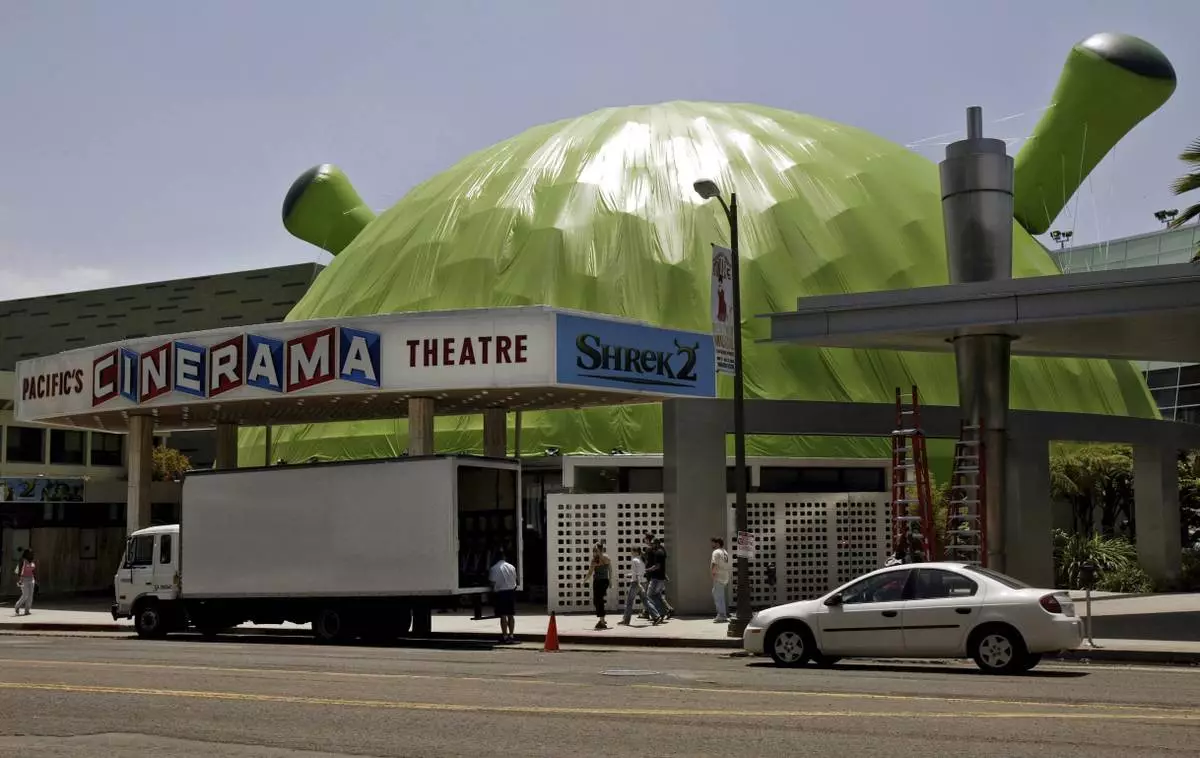
FILE - The dome of the Cinerama theatre is covered by green plastic in the form of animated character Shrek to promote the film "Shrek 2" in Los Angeles on May 19, 2004. (AP Photo/Kevork Djansezian, File)
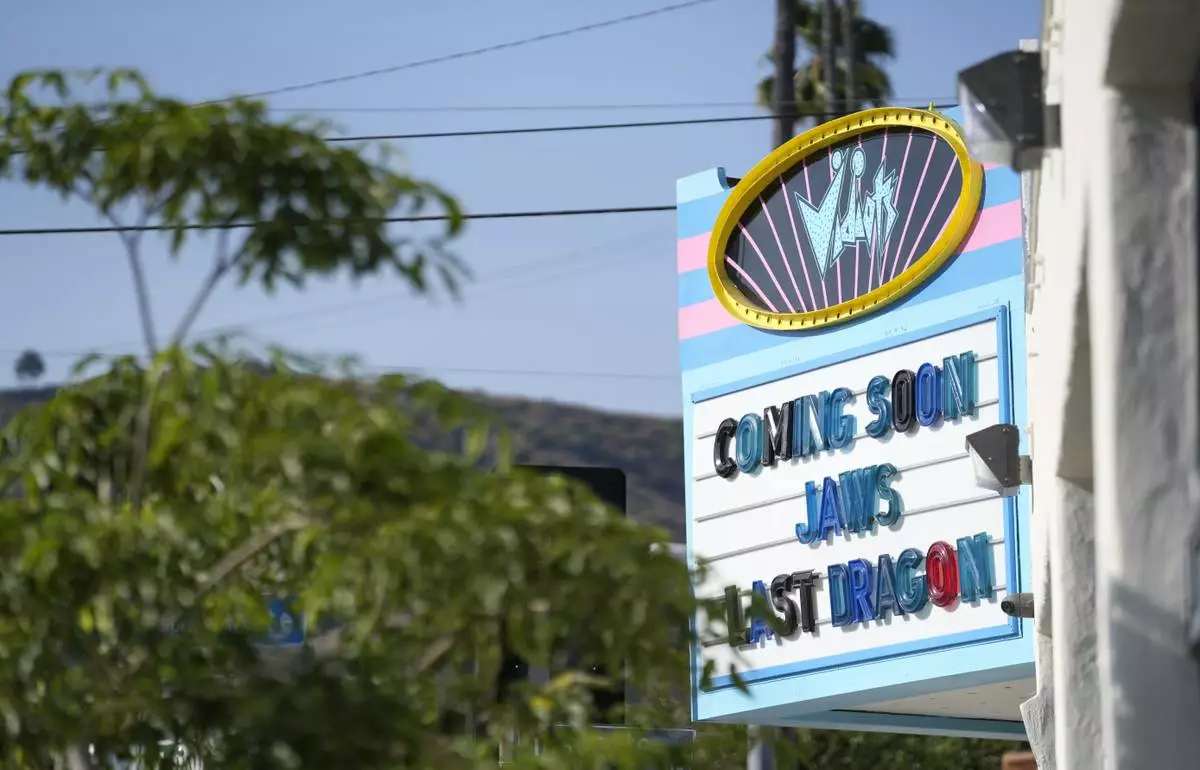
A marquee at the Eagle Theatre at Vidiots Foundation advertises screenings of "Jaws" and "Last Dragon," Tuesday, June 27, 2023, in Los Angeles. (AP Photo/Chris Pizzello)
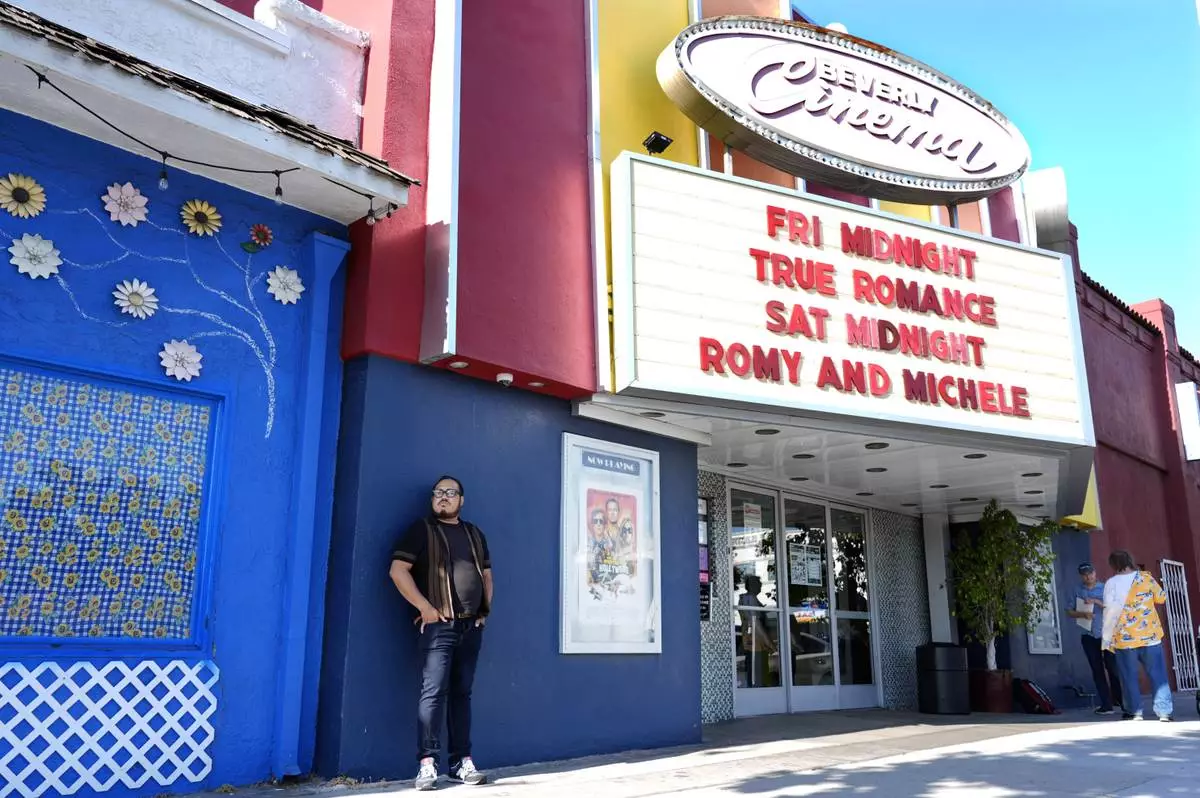
Cinephile Miles Villalon, left, stands underneath the marquee of the New Beverly Cinema revival theater, Friday, Aug. 9, 2024, in Los Angeles. (AP Photo/Chris Pizzello)
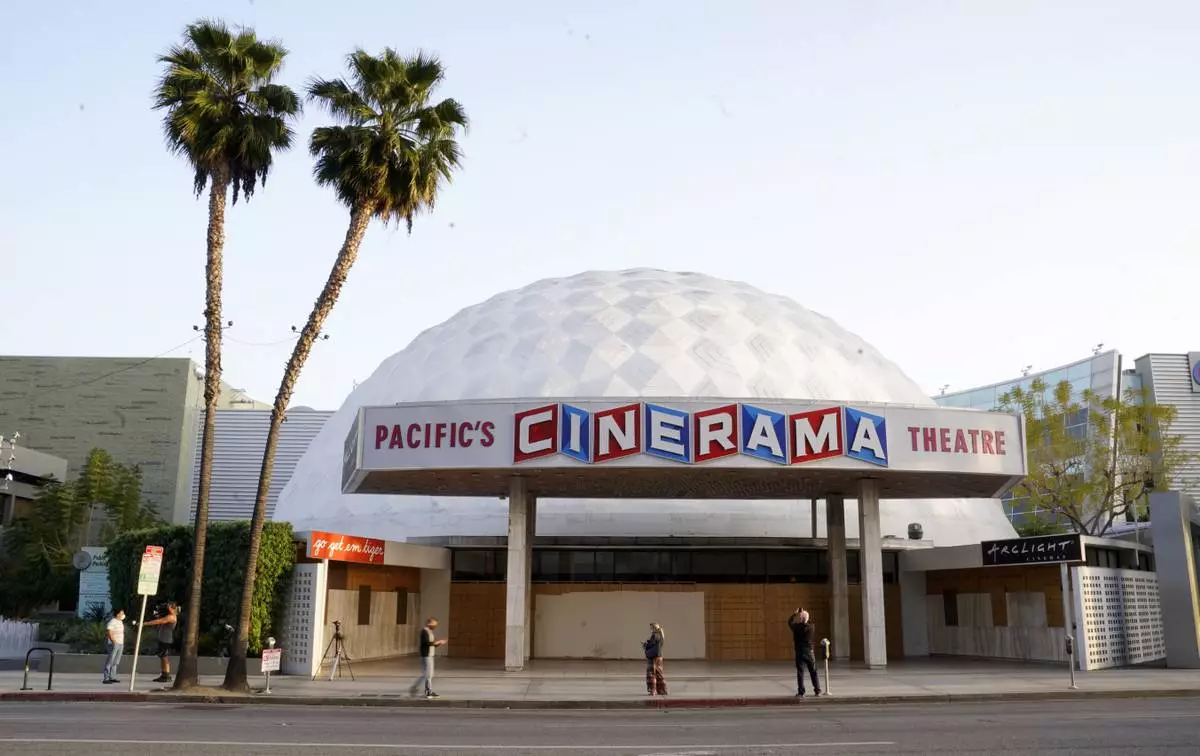
FILE - People appear outside the Cinerama Dome movie theater, Monday, April 12, 2021, in Los Angeles. (AP Photo/Chris Pizzello, File)
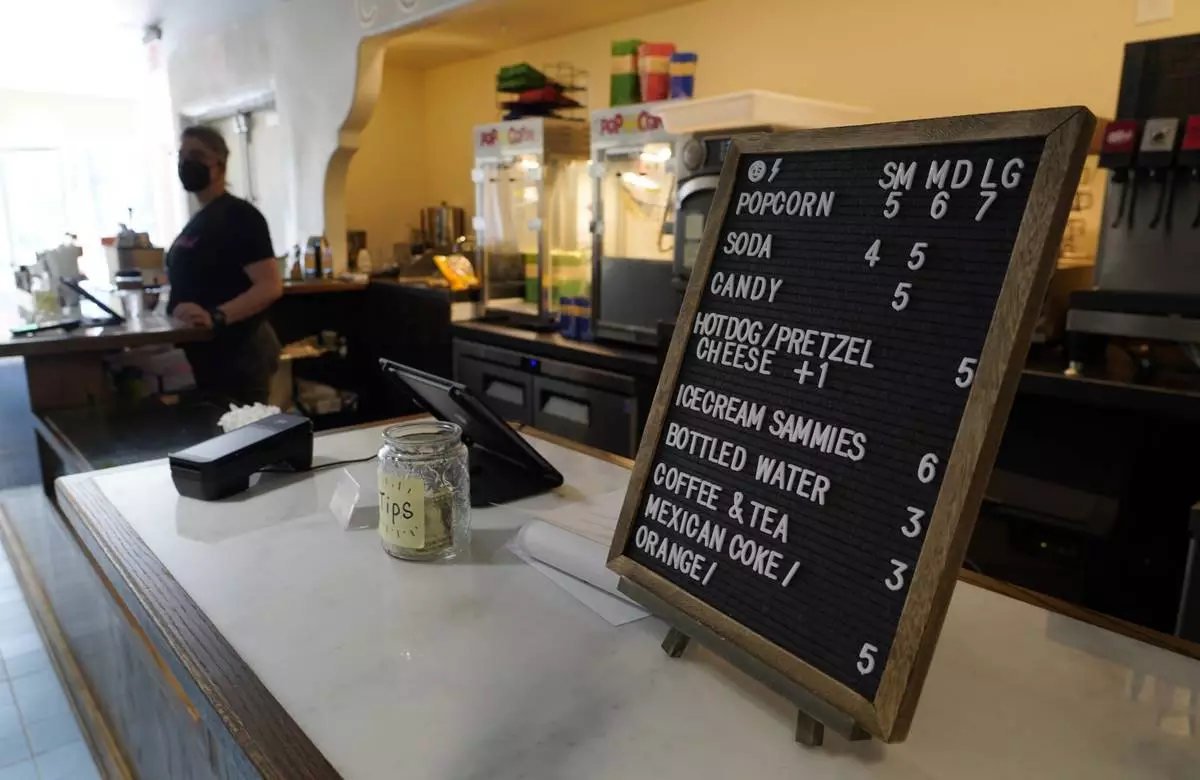
A list of concessions is pictured in the lobby of the Eagle Theatre at Vidiots Foundation, Tuesday, June 27, 2023, in Los Angeles. (AP Photo/Chris Pizzello)
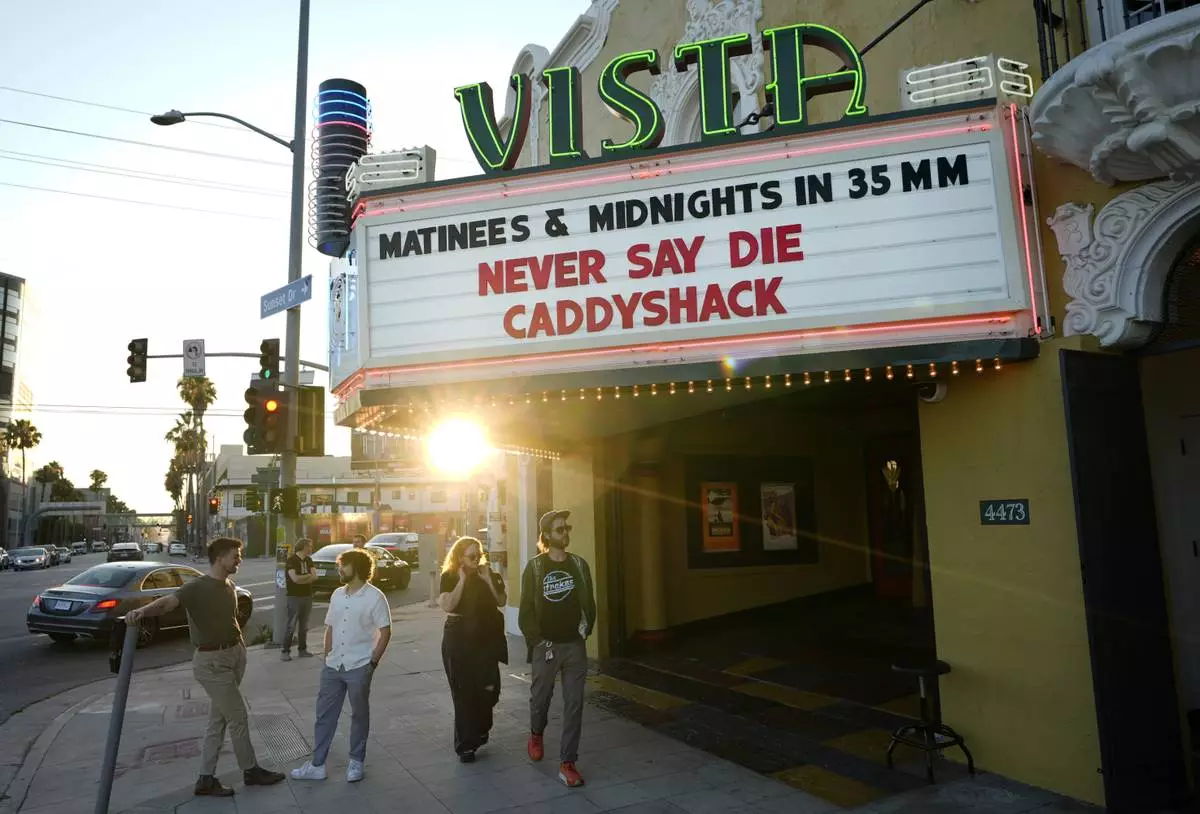
Pedestrians gather under the marquee of the Vista Theatre, Friday, Aug. 2, 2024, in Los Angeles. (AP Photo/Chris Pizzello)
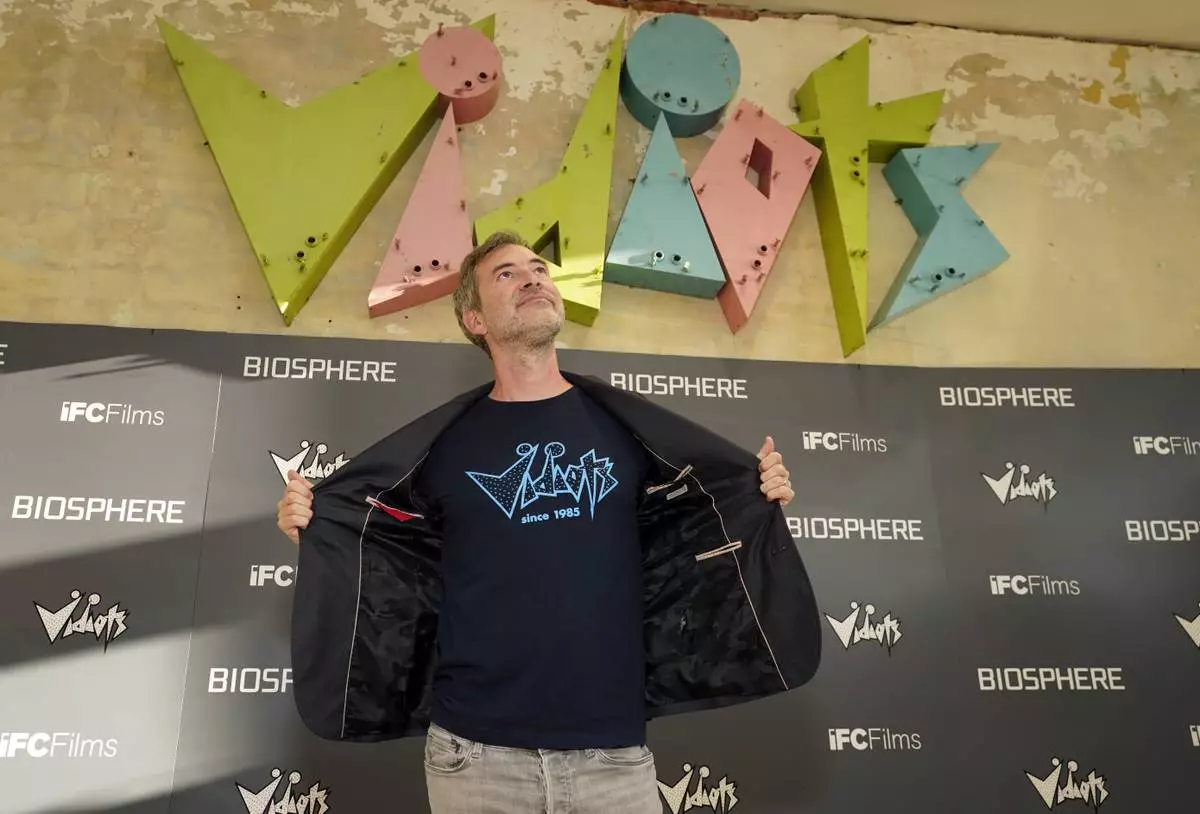
Mark Duplass, a cast member in "Biosphere," poses at the premiere of the film, Tuesday, June 27, 2023, at Vidiots Foundation in Los Angeles. Duplass is a founding member of Vidiots Foundation, which features a combined video store and movie theatre. (AP Photo/Chris Pizzello)
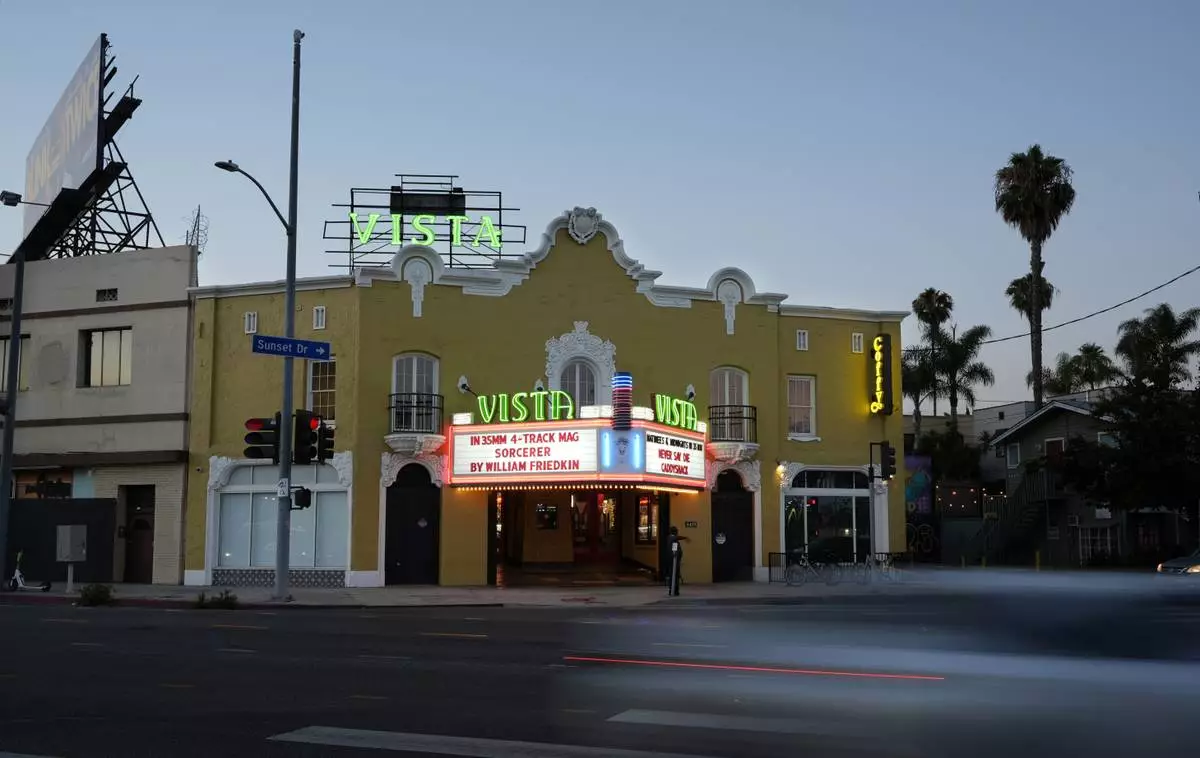
The Vista Theatre is pictured, Friday, Aug. 2, 2024, in the Los Feliz section Los Angeles. (AP Photo/Chris Pizzello)
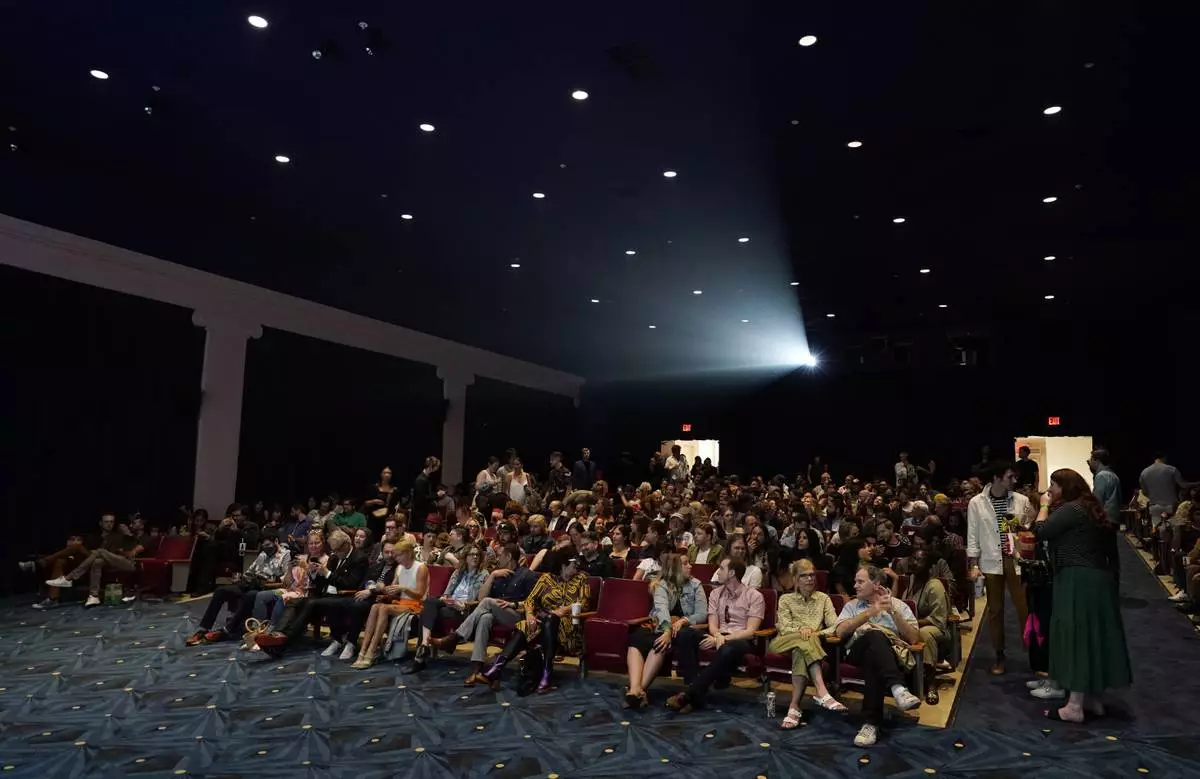
The audience awaits the premiere screening of the film "Biosphere," Tuesday, June 27, 2023, at the Eagle Theatre at Vidiots Foundation in Los Angeles. (AP Photo/Chris Pizzello)
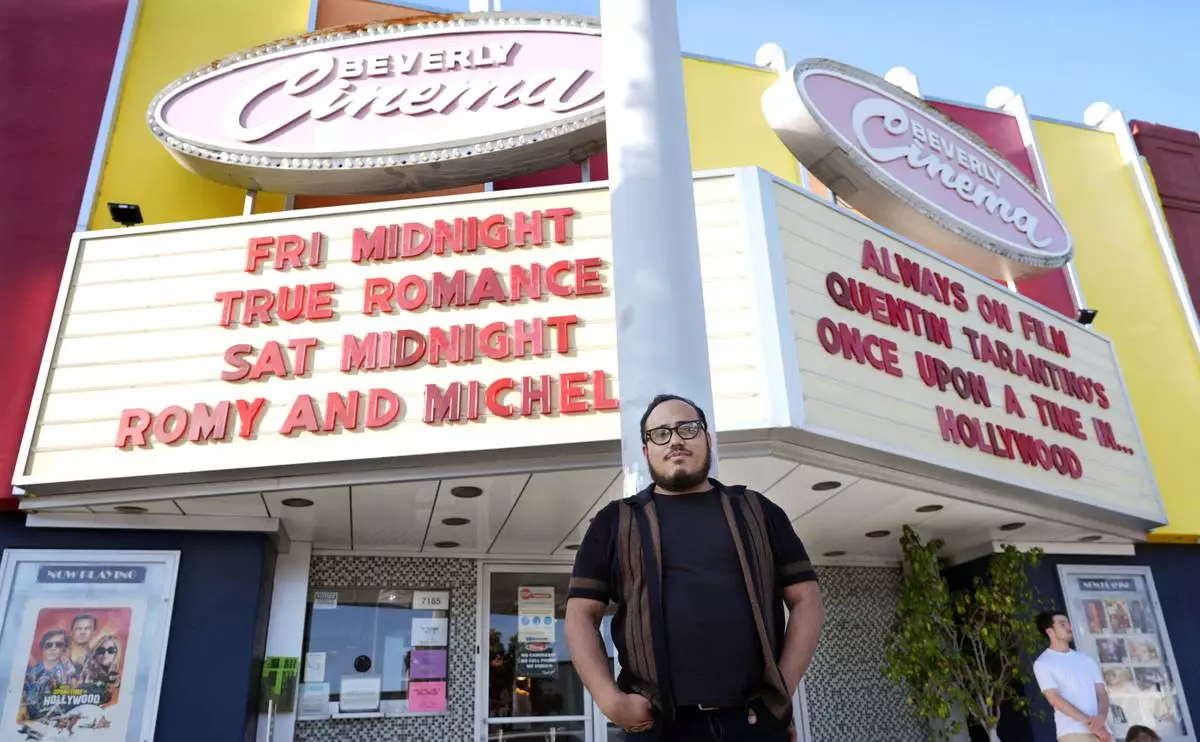
Cinephile Miles Villalon poses near the marquee of the New Beverly Cinema revival theater, Friday, Aug. 9, 2024, in Los Angeles. (AP Photo/Chris Pizzello)


